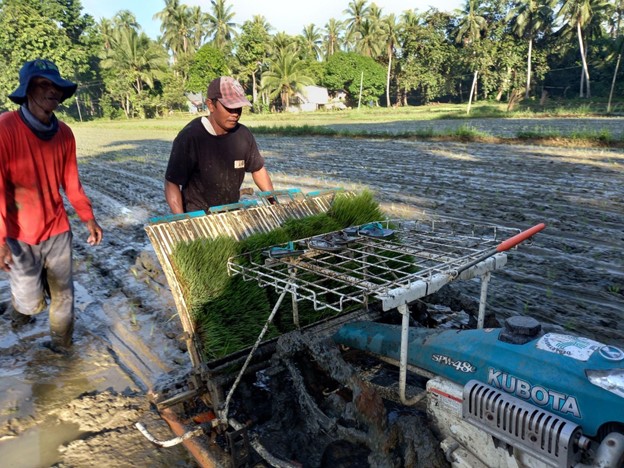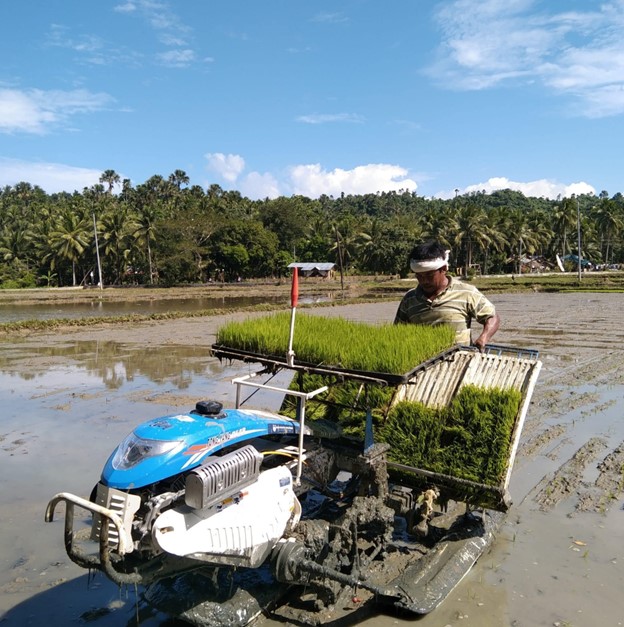
Romeo Ferrer, 65, and Florante De Luna, 50, from Gumaca, Quezon used to spend a lot of time and money to transplant the one-hectare land they each owned. But when they began using mechanical transplanters, things started to change for the better.
They have been religiously following the recommended practices and technologies they learned through their engagement as farmer-cooperators of the PalaySikatan technology demonstration last 2021 wet season. They are now serving as operators of the mechanical transplanter, providing farm services to their fellow farmers.
Prior to PalaySikatan, an initiative of the Rice Competitiveness Enhancement Fund (RCEF) Seed Program, Ferrer and De Luna used to manually transplant rice seedlings. They would hire 12 people to transplant for the whole day for a labor cost of P6,000.
Ferrer
remembered the first time he operated the transplanter.
“At first, I had a hard time operating the machine. I eventually learned,”
Ferrer recalled.

According
to Ferrer, using the transplanter is faster and economical. He only hired two
people, finished transplanting his one-hectare rice field in five hours, and
was able to save P2,000.
“The mechanical transplanter made my crops stand better. The stem also looks
firm and huge,” he described.
Ferrer and De Luna also earn additional income as operators, making them more competitive in terms of this area. They are paid P600 for every hour they transplant.
They are grateful for the knowledge they acquired and the improvements they experienced from the initiative.
The RCEF Seed Program is a component of Republic Act 11203 or Rice Tariffication Law, which allots P10 billion funds every year for the rice farmers from the rice tariff earnings of the country. The program is a six-year government initiative to help farmers compete in the international rice market. The local government units and lawmakers assist in its implementation.
DA-PhilRice leads the RCEF-Seed Program and is the government’s lead agency on rice research and development mandated to help ensure a rice-secure Philippines.




